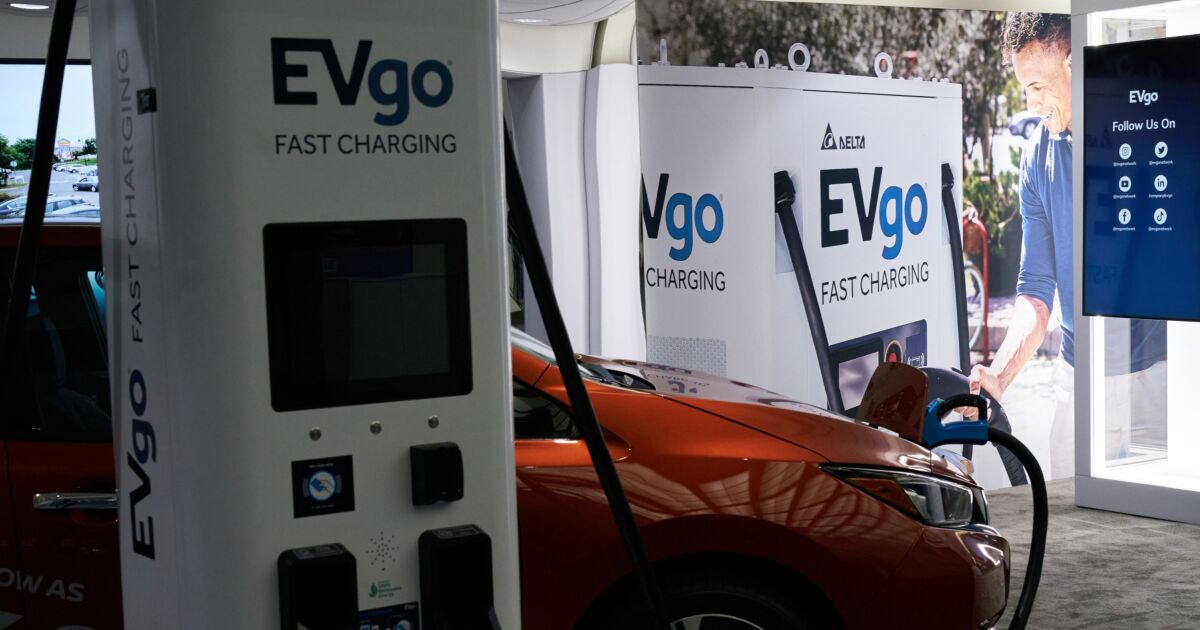Is California declining, or a growth engine? Depends who you ask
6 min read
It’s a tale of two narratives, written through competing political perspectives.
One one hand, there’s the economy that would be the world’s fifth largest if it were a nation, and is arguably on a path to surpass Germany for fourth place.
That’s the story that Gov. Gavin Newsom and fellow California Democrats like to talk about.
On the other hand there’s a story of manufacturing jobs and corporate headquarters leaving the state for places like Texas amid a stagnant to declining population, told by Republicans and outlets like Fox News.
Reality, as usual, is not as sharply defined as the stories partisans want to tell about it, though both narratives contain both truth and exaggeration.
California’s budget did boast a $97 billion surplus for fiscal year 2021-22. The state also contains huge encampments of homeless people, as the successful side of the economy pushes housing prices so high that many middle-class Californians leave for cheaper places as less-fortunate people are forced outdoors.
And the state recorded a population loss of more than 117,000 in 2021, according to its Department of Finance. Relatively low population gains in the 2010s cost California one of its 53 seats in the U.S. House of Representatives.
But the losses have not appeared to staunch the state’s economic growth: California still has 379 companies with a market value of at least $1 billion, according to Bloomberg data quoted by the governor; even with the last year’s population loss, it has almost 39.2 billion residents, more than Canada or Australia.
“While critics often say California’s best days are behind us, reality proves otherwise – our economic growth and job gains continue to fuel the nation’s economy,” Newsom said in a statement.
“California’s values and entrepreneurial spirit have powered this ascent,” he said. “We will continue doubling down on industries of the future, like renewables and clean energy.”
Fueling reports that the Golden State has lost its shine are reports that Wells Fargo — the San Francisco-headquartered bank that traces its history to 1852 amid California’s Gold Rush — has moved some banking operations to Austin, Texas, and Raleigh, North Carolina.
Wells Fargo has announced it is building a massive campus in Irving, a northern suburb of Dallas, sparking rumors that the bank, which has a national footprint after a laundry list of mergers and acquisitions over the years, might be relocating its headquarters there.
“We have no plans to move our headquarters,” a spokeswoman said.
She failed to respond to questions about how many workers remain in San Francisco or why the bank deems it important to maintain a presence in the city.
And Elon Musk, whose Tesla stock-fueled rise to world’s wealthiest man status was charged by cars built in Fremont, California, has opened factories in China, Germany and Austin, Texas, where the factory now houses Tesla’s headquarters.
He also has hinted that he might move Twitter’s San Francisco headquarters out of the state after his deal to purchase the social media company is final, which is expected this week.
“Based on the things I am hearing, northern Nevada has a real shot at a Twitter relocation,” said John Boyd, Jr., principal of The Boyd Company, Inc., a company that does relocation research.
That headquarters might not be much of a prize if Musk fires most of Twitter’s employees, as he has also suggested.
A site selection study Boyd released in October named the top U.S. cities for corporate headquarters in the post-pandemic world — none of them in California. The study considered remote-working corporate relocation trends, state tax structures and the cost of operating a corporate head office in each location.
Musk’s contentious relationship with California in recent years that included complaints from the billionaire about high taxes and a difficult regulatory environment were factors in Boyd’s report. Other companies – including Charles Schwab, McKesson, Oracle and CBRE have relocated their headquarters away from San Francisco in recent years, Boyd’s report said. Company leaders cited high operating costs, rising taxes, homelessness and crime for their moves, according to the report.
Many companies have relocated to the Austin or Dallas areas in Texas, but Boyd’s report puts a spotlight on Minden, Nevada, 17 miles from the California border at South Lake Tahoe.
“Minden has land – and it’s proximate to both Reno and Lake Tahoe, hospitality infrastructures,” Boyd said.
The Reno-Sparks area has experienced exponential growth with companies like Amazon and Tesla locating there, but Boyd said that in the recent push to relocate headquarters, Minden is a more likely choice, because administrative offices don’t require the same kind of infrastructure that manufacturing does. They just need access to airports.
“Minden is less than an hour from the airport in Reno,” Boyd said. “Northern Nevada is among the fastest growing markets in the western U.S. attracting companies from northern Nevada. Not just Tesla, but Panasonic.”
Nevada and other states that have no corporate or personal taxes will be big draws for companies seeking to relocate, not just from California but other high-tax states, Boyd said.
Boyd said his company is getting a lot of “data requests,” from people looking at Raleigh, North Carolina and Florida on the East Coast, and at central and eastern Washington state as well as around Reno.
“There are still record-setting deals happening in Austin and Dallas, but not everyone is prepared to deal with the HR challenges there,” Boyd said. “Tech and multimedia companies are sensitive to the abortion issue. Before they commit to Texas, they want to consider Nevada where abortion rights have been codified.”
Like California, Nevada is ESG-friendly, Boyd said.
“Northern Nevada is a leader, they are green friendly, thermal, wind, solar,” Boyd said. “And, Minden is 23% less costly than San Francisco. There are thousands of companies in San Francisco, and the Bay Area metro region that are examining the real opportunity cost, and the potential HR advantage of leaving high tax, anti-business California.”
ProLogis’ CEO also recently said that “crime is more of a motivating factor than the never-ending cycle of taxes, spending and anti-business regulations,” according to Boyd’s report. This may be another case of perception trumping reality; the murder rate is higher in Texas and Florida, another recent magnet for corporate headquarters, than it is in California.
Boyd said his company produced the study because once COVID-19 concerns started to wane earlier in the year, requests for information on northern Reno land “have been off the charts.”
“We are projecting a lot of growth in that region,” Boyd said.
What doesn’t get as much press is that SpaceX, a Musk company, employs more than 1,000 people at its headquarters in Hawthorne, California, which also serves as its primary manufacturing plant.
Propelled in part by Newsom’s programs, renewable energy has become California’s fastest-growing business, according to a Newsom statement. The state’s clean-economy objectives are seen by his administration as an engine of economic development and innovation.
California, top U.S. market for electric vehicles amid regulatory efforts to phase out internal combustion cars and trucks, is home to 43 manufacturers of ZEVs and related equipment, including batteries and infrastructure products, according to the California Energy Commission.
Newsom has doubled down on clean energy and zero-emission vehicles, implementing a $10 billion package to make it more affordable for Californians to buy ZEVs while building out the state’s charging infrastructure.
California now has six times more clean energy jobs than fossil fuel jobs, the administration said.







